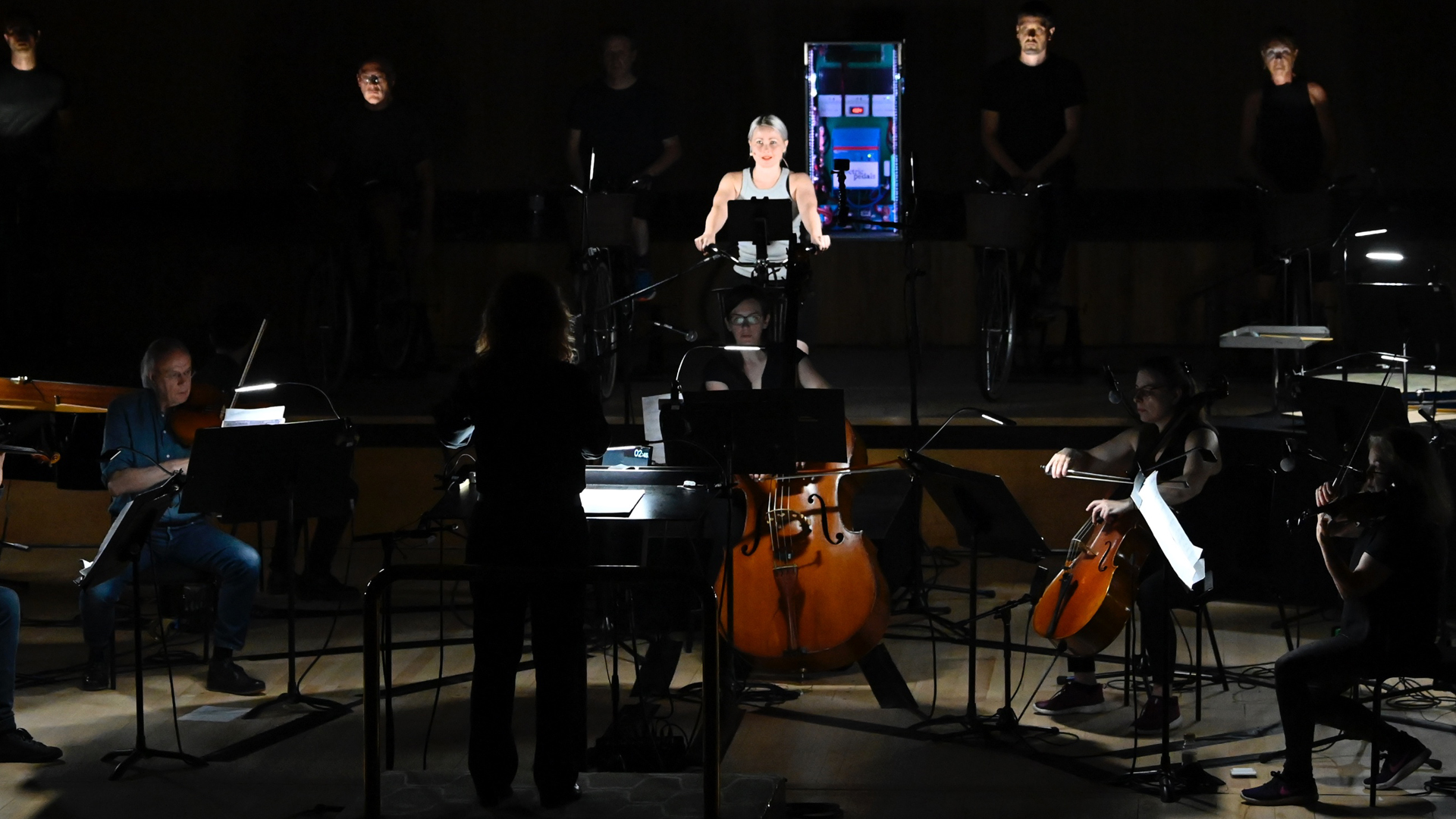Singers are used to unusual requests from intrepid composers and bold stage directors. The 21st-century opera star might have to sing well beyond the usual range that would be normal for their voice type, perhaps adding grunts, shrieks and clicks (known as ‘‘extended techniques’’, which regularly feature in contemporary music). Cast members may be required to don curious costumes, such as a head-mounted camera that projects close-ups of their mouth on to enormous screens (witnessed in several productions, all equally bizarre). But few, if any, have been asked to perform a particularly complex score while pedalling a bike – constantly, for 90 minutes.
Jessica Aszodi took on this unusual challenge for the recent premiere of Houses Slide, a new work by Laura Bowler that explores the climate crisis. (‘‘My body is my instrument’’, the Australian mezzo-soprano jokingly told Gabriel Prokofiev during a post-concert Q&A.) The oratorio mixes taped voices with a solo vocal part, accompanied by chamber ensemble. Having the lead performer positioned on a bike provides a powerful visual reminder of the ever-present problem we face.
However, at the recent London Royal Festival Hall performance, where the bike was one of 16, it also offered a practical purpose: the auditorium was fuelled entirely by pedal power. Director Katie Mitchell worked with Colin Tonks to take the main stage off-grid, with all lighting, the PA and microphones directly run by the bikes. Some 15 volunteer cyclists and Aszodi successfully managed to keep all systems going, with just a few tentative flashes as the show began.
Bowler collaborated with playwright Cordelia Lynn and climate anxiety psychotherapist Ro Randall to collect feedback from a wide range of participants, which then formed the basis of the lyrics. The piece begins with heavy breathing – conductor Sian Edwards led the London Sinfonietta (who commissioned the work) through their inhalations and exhalations, sometimes tonelessly into instruments. The text catalogues observations of environmental loss and change, and we follow Aszodi’’s engagement, depression and eventual commitment to take positive action. As Aszodi cycles – literally – through human responses to the crisis, the complexity of the issue is writ large. Houses Slide represents a range of views, from the deeply committed to the commentator who will recycle but won’t get rid of the SUV.
That participant probably wouldn’t be keen to offer their pedalling services, but plenty are – off-grid shows are growing in popularity. (Organisations such as Electric Pedals can provide bikes to power carbon-zero events.)
Opera houses are also finding inventive ways of reducing their environmental footprint. When it transpired that it would have to rethink the setup for its current summer season, Opera Holland Park cleverly used individual chairs from previous productions to lay out a new seating arrangement that enabled better social distancing – and could be easily changed to accommodate varying bookings. Designed by the company takis, the visually striking configuration means that visitors to London’s woodland stage may be sat on a mock regency or a mid-century dining-room chair.









